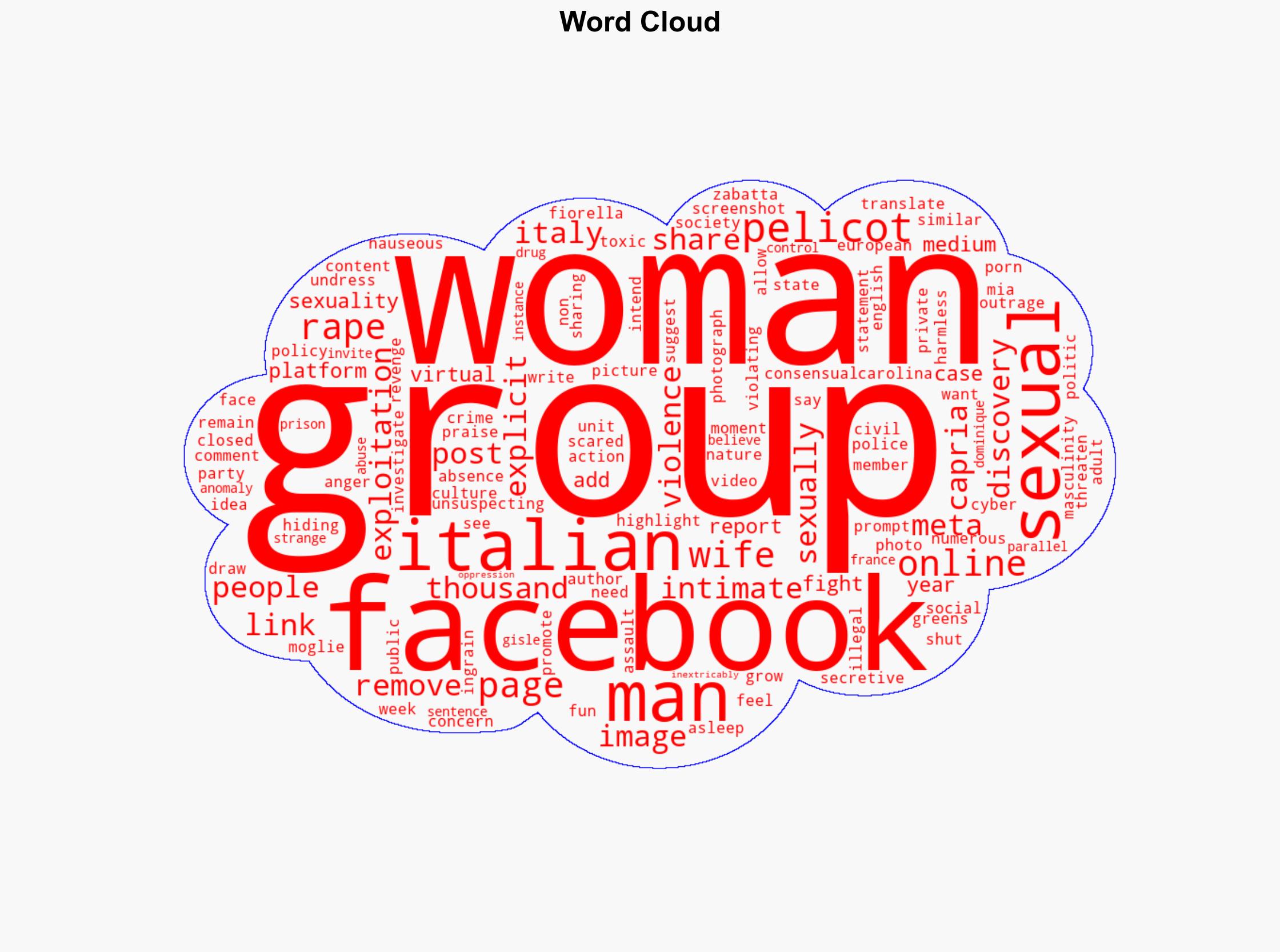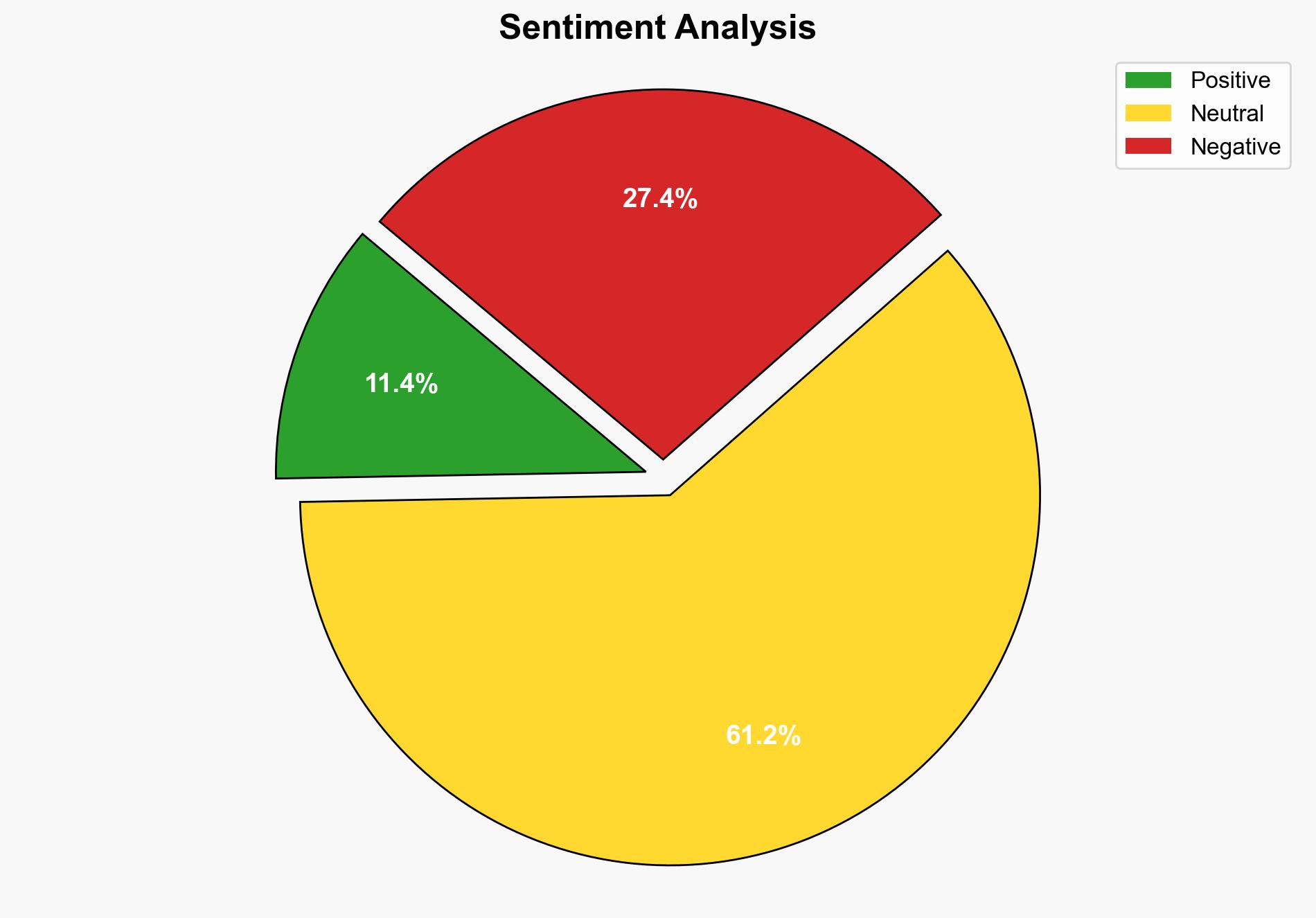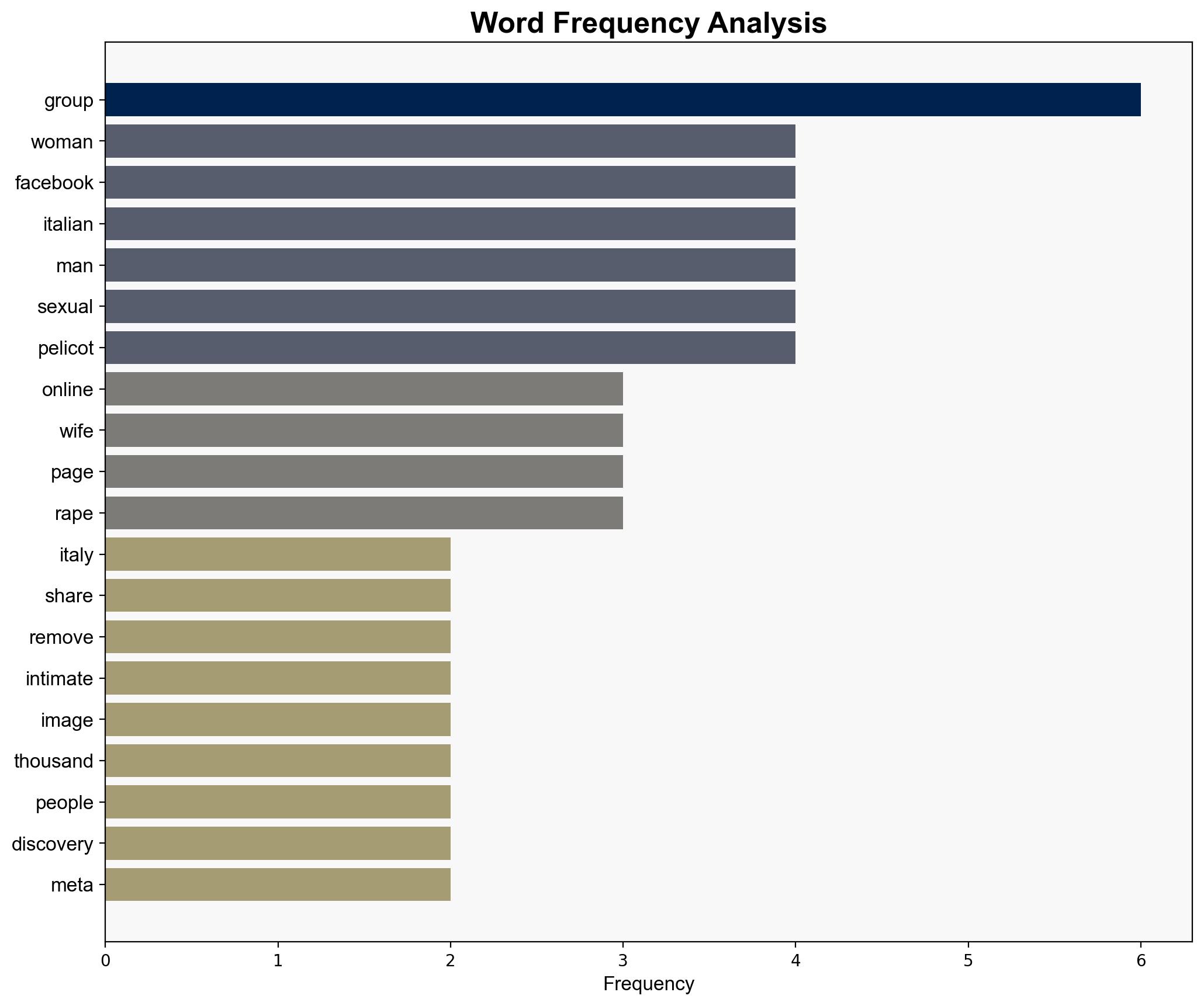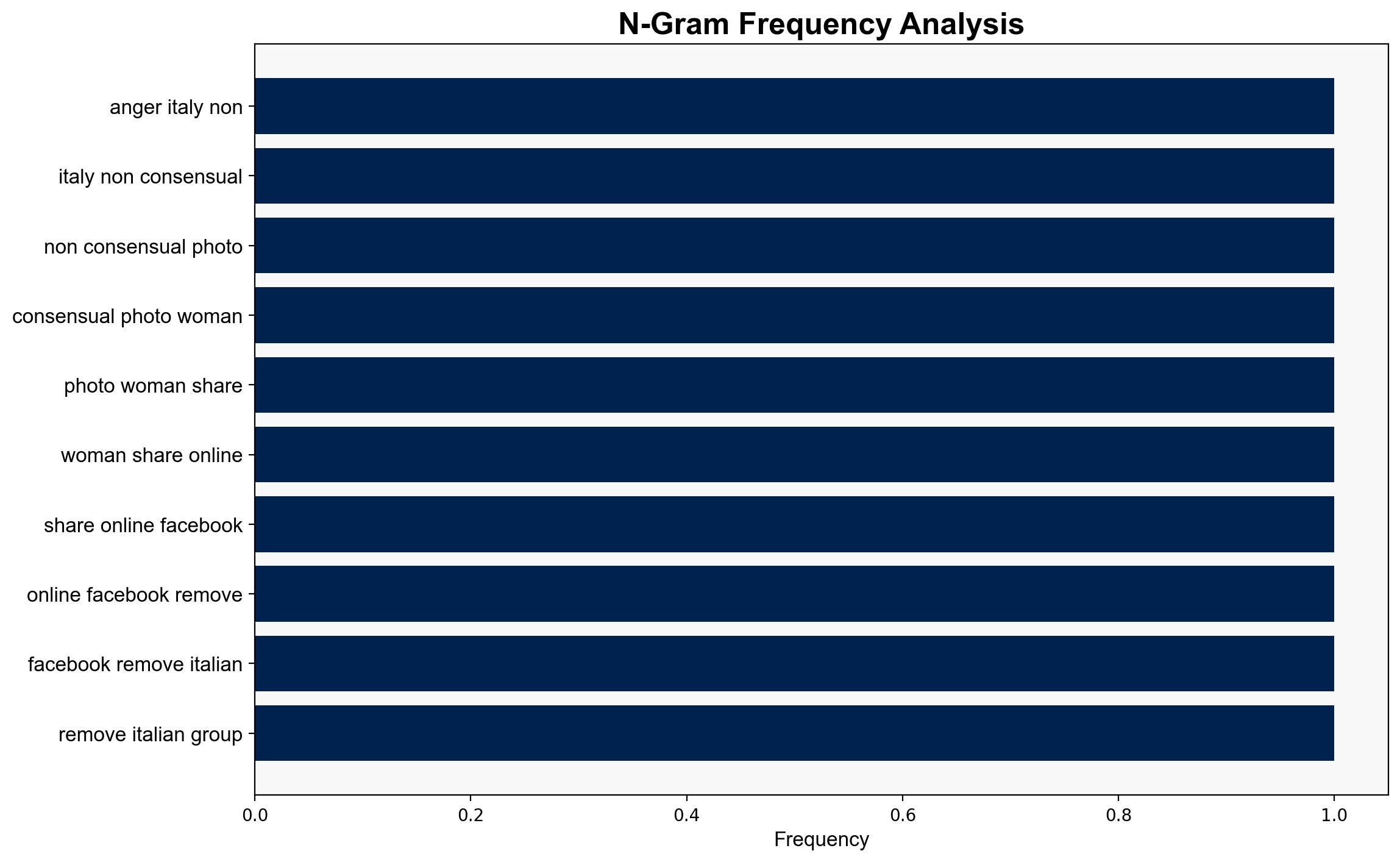Anger in Italy over non-consensual photos of women shared online – BBC News
Published on: 2025-08-22
Intelligence Report: Anger in Italy over non-consensual photos of women shared online – BBC News
1. BLUF (Bottom Line Up Front)
The most supported hypothesis is that the proliferation of non-consensual photo-sharing groups online is indicative of a broader cultural issue regarding gender-based violence and digital exploitation. There is a high confidence level in this assessment due to the pattern of similar incidents and the societal reactions observed. Recommended actions include increased regulatory oversight on social media platforms and enhanced public awareness campaigns to address and mitigate gender-based violence and digital exploitation.
2. Competing Hypotheses
1. **Cultural Issue Hypothesis**: The sharing of non-consensual photos is symptomatic of ingrained cultural attitudes towards gender and sexuality, reflecting a broader societal problem that extends beyond digital platforms.
2. **Platform Failure Hypothesis**: The issue primarily stems from inadequate enforcement of social media platform policies, allowing such groups to proliferate due to insufficient monitoring and response mechanisms.
Using the Analysis of Competing Hypotheses (ACH) 2.0, the Cultural Issue Hypothesis is better supported by evidence of similar incidents in other countries and the societal outrage expressed, suggesting a deep-rooted cultural problem. The Platform Failure Hypothesis, while valid, is less supported as it does not fully account for the societal dimensions highlighted in the reactions and parallels drawn with other cases.
3. Key Assumptions and Red Flags
– **Assumptions**: It is assumed that societal outrage accurately reflects the broader cultural attitudes and that the platform’s policy failures are not isolated incidents.
– **Red Flags**: Potential bias in attributing the issue solely to cultural factors without considering technological and policy dimensions. The absence of detailed data on platform enforcement actions is a blind spot.
4. Implications and Strategic Risks
The persistence of such online groups poses risks of normalizing gender-based violence and undermining trust in digital platforms. This could lead to increased regulatory scrutiny and potential economic impacts on social media companies. Geopolitically, it may strain international relations if perceived as a failure to protect citizens’ rights. Psychologically, it could exacerbate public fear and anxiety regarding digital privacy and safety.
5. Recommendations and Outlook
- **Mitigation Actions**: Implement stricter regulatory frameworks for social media platforms to enforce policies against non-consensual content sharing. Enhance public education on digital rights and gender equality.
- **Scenario Projections**:
– **Best Case**: Successful regulatory interventions lead to a significant reduction in such incidents and improved digital safety.
– **Worst Case**: Continued proliferation of these groups leads to widespread societal harm and increased regulatory burdens on digital platforms.
– **Most Likely**: Gradual improvements in policy enforcement and public awareness, with ongoing challenges in cultural attitudes.
6. Key Individuals and Entities
– Carolina Capria: Highlighted societal concerns through public statements.
– Fiorella Zabatta: Advocated for action against toxic masculinity and digital exploitation.
– Meta (Facebook): Central entity in addressing policy enforcement failures.
7. Thematic Tags
national security threats, cybersecurity, digital rights, gender-based violence, social media regulation





